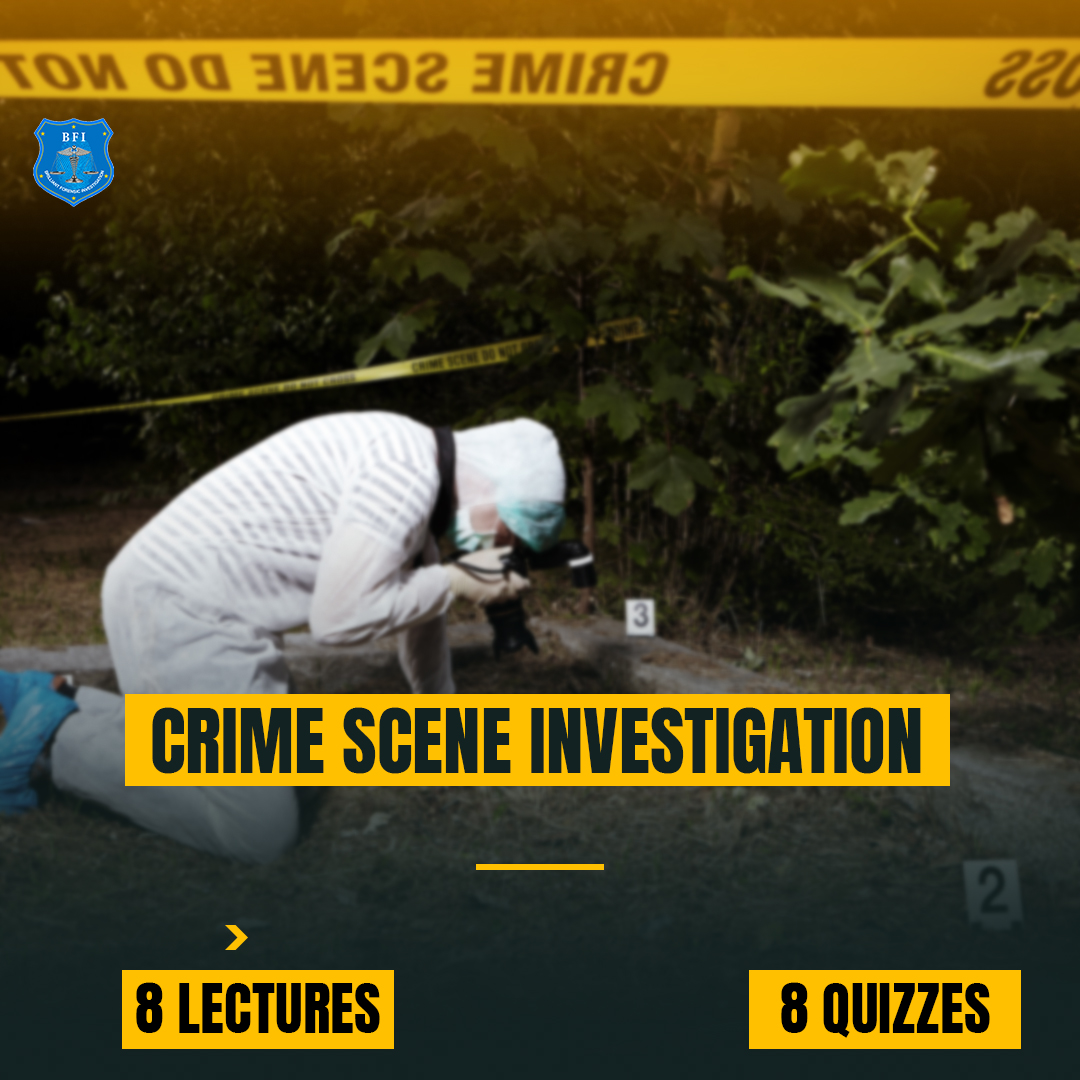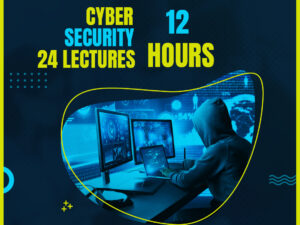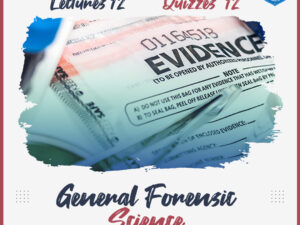| Module 1: Introduction to Crime Scene Management |
| Definition crime, Types of crime, Definition of crime scene, Types of crime scene, Responsibilities of first responder at crime scene, Processing the Crime Scene : Protection and Isolation of the crime scene, Recording the Crime Scene (Note Taking, Photography and Video recording), Sketching of crime scene, Searching of physical evidences, Collection and Packaging of physical evidences, Labeling of Physical Evidences, Chain of custody, Forwarding Letter and Transport Certificate |
| Module 2: Physical Evidence |
| Definition of Evidence, Classification of Evidence: Testimony evidence and Physical Evidence, Common types of Physical Evidence encountered at crime scenes, Classification of physical evidence, Value of physical evidence, Significance of physical evidence |
| Module 3: Collection, Preservation and Handling of Physical Evidence |
| General guidelines and considerations of collecting physical evidences, Preservation of physical evidences, Packaging and Labeling of physical evidences, Sealing of physical evidence, Forwarding and maintaining chain of custody, importance of maintain integrity of physical evidence |
| Module 4: Impression Evidence |
| Introduction to Impression Evidence, Types of Prints, Types of Impression Evidence: Footprint, Tire Track, Toolmark, Bitemarks and Fingerprints: Introduction, Features to be analyzed, Pattern characteristics, Forensic Significance of Impression Evidences |
| Module 5: Collection, Preservation and Packaging of Impression Evidence |
| Footwear impressions: Format of impression 2D & 3D, Collection of footwear impression, Preservation of 2D & 3D footwear impressions, Toolmark impression: Documentation, Collection and Preservation, Bitemark impression: Documentation, Collection & Preservation, Fingerprint impression: Documentation, Collection & Preservation |
| Module 6: Crime Scene reconstruction |
| Definition of crime scene reconstruction, Role of crime scene reconstructionists, Importance of crime scene reconstruction, Nature of crime scene reconstruction, Basic Principles of crime scene reconstruction: Recognition, Identification, Individualization and Reconstruction, Stages of crime scene reconstruction, Classification of crime scene reconstruction |
| Module 7: Bloodstain pattern analysis: Crime scene reconstruction |
| Bloodstain pattern reconstruction, Principles of Bloodstain pattern analysis, Types of Bloodstain pattern, Collection of Bloodstain, Role of Bloodstain pattern analyst, How and where the bloodstain pattern analysis is performed? |
| Module 8: Investigation and Interrogation |
| Introduction to Investigation, Laws related to investigation, Investigation, Inquiry and trial difference, Investigative Interview, Criteria for interviewers: Empathy, Communication and Professionalism, Preparation of interview, Non-accusatory, Cognitive interview, Techniques of cognitive interview, Victim interview, Witness interview, Sexual Harassment interview, Recording of statements of witness under 164(5)CrPC, Interrogation, Process of Interrogation, REID technique of interrogation and Steps of REID technique |





